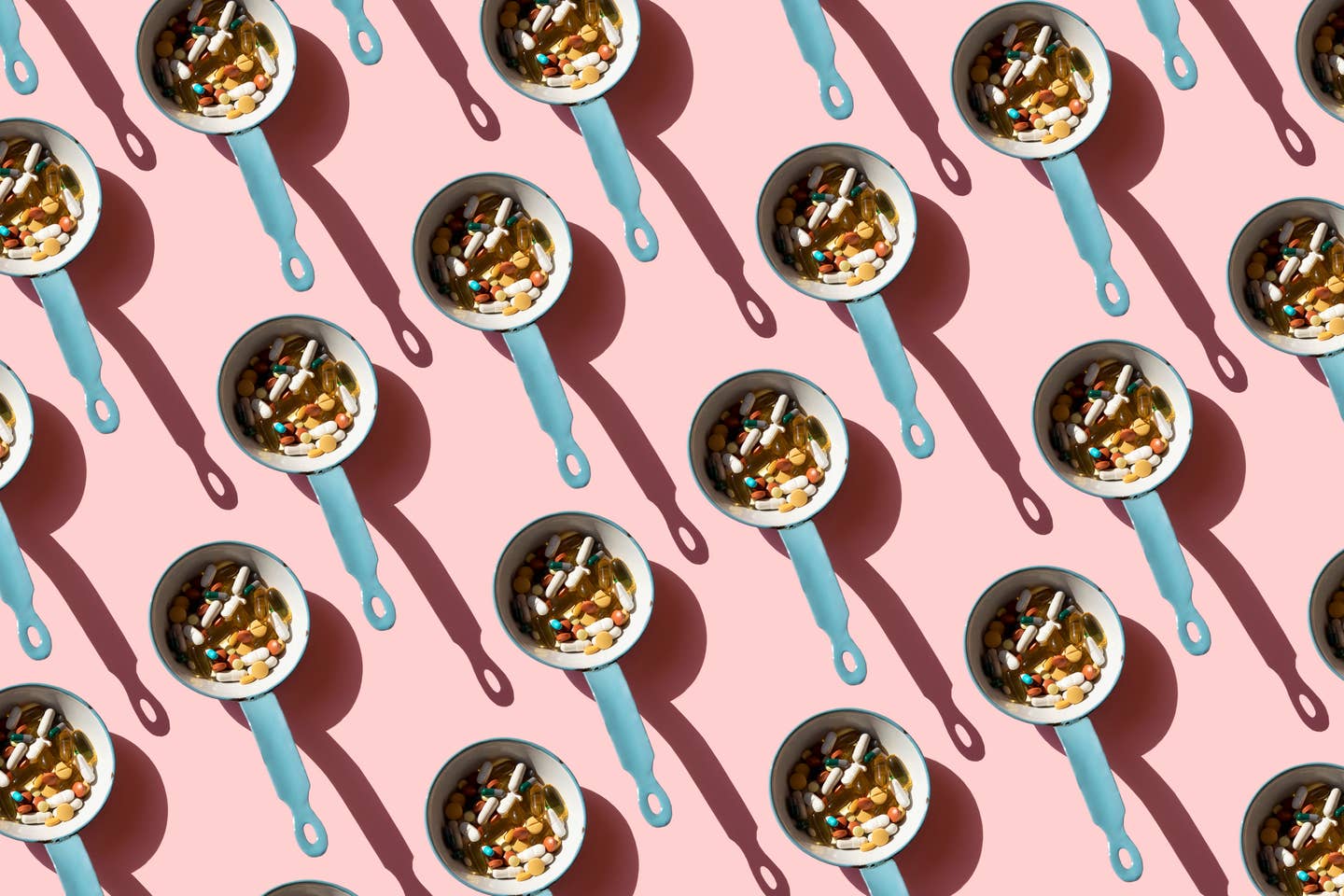
5 Nutrients That Nutritionists Say Vegans Should Consider Taking Besides B12
Once you go vegan, you’ve likely had at least three (or upwards of, oh, 500) people ask you: “But what about B12?” By now, you probably have your response to this seemingly endless chorus down pat. But are there other nutrients you may be missing out on when you adhere to a plant-based diet?
The short answer: Yes. The longer answer: Yes, there’s a slew of other important vitamins and supplements that may enhance your vegan diet, especially right now as we hunker down at home and our diets may be more limited than usual.
“In general, most vegans know they’re at risk for nutrient deficiencies in B12 and protein,” says Amanda A. Kostro Miller, RD, LDN, who serves on the advisory board for Fitter Living. “But those who adhere to a strictly plant-based diet may also be at risk for nutrient deficiencies in vitamin D, EPA, DHA, iron, zinc, calcium,” she explains, noting that if you adhere to a well-rounded diet, it’s possible to maintain a solid nutrition profile. (Veggie burger and coconut milk ice cream aficionados, sadly you cannot subsist on ice cream and bean patties alone!.)
Curious about what your body may need? Read on for nutritionists’ takes on what vitamins and supplements to consider adding to your regime pronto. And as always: Before adding a new vitamin or supplement to your routine, talk with your doctor or nutritionist. À votre santé!
- B12
Once you go vegan, you may have had a friend ask you: “But what about B12?” Even if you have your answer and eye roll down, it bears repeating: B12 is essential for your nerves and blood cells—you can’t live without it. With the exception of nutritional yeast and other fortified foods like plant-based milks and cereal, it comes from animal foods. Thus, it’s best for most vegans (and even some vegetarians) to take it in supplement form, typically in a multivitamin. Aim for the RDA of 2.4 micrograms daily (slightly more for pregnant and lactating women).
1. Multivitamin
“I take a multivitamin daily, however, I know that I still must eat a diverse healthy diet, even if I’m taking one,” shares Kostro Miller. Worth noting: Some multis aren’t actually vegan as they can be made with animal products like gelatin, which is derived from the skin, cartilage, and bones of animals. We love Ritual’s vegan-certified multivitamin, available in versions for women 18+, 50+, and prenatal.
2. Iron
Multivitamins typically contain iron, so scan your label to make sure it does. “Iron is a mineral that helps make healthy red blood cells to carry oxygen all over the body and we need oxygen to get all over the body so we can oxygenate every cell,” explains Kostro Miller. “When someone is iron-deficient, their body has a hard time making enough healthy red blood cells to carry oxygen,” she continues, adding that vegans and vegetarians are at a particular risk of being low on this nutrient since iron from plant-based sources is not as easily absorbed by your body.
If you think you may be iron-deficient, look for signs like fatigue, paleness, weakness and chronic coldness in the extremities. Important note: “Do not take iron supplements unless instructed by your doctor to treat iron deficiency. Taking iron supplements can lead to unpleasant side effects like constipation, black stool, and vomiting,” cautions Kostro Miller.
3. Magnesium
Research has linked magnesium with enhanced sleep quality, but the mineral plays several other essential roles in your body. “Magnesium contributes to cardiovascular health, bone health, glucose uptake and overall relaxation,��� says Natalie Rizzo, MS, RD, an NYC-based plant-based Registered Dietitian. “As a marathon runner, I wake up early to train and sometimes don’t get the sleep I need. I added the Life Extension Extended-Release Magnesium to my daily routine to help me sleep better and also help my body utilize glucose for fuel during my long runs,” she continues. (Worth noting: Rizzo is also a spokesperson for the brand.)
Especially amidst the current anxiety-provoking global crisis, you may find a magnesium supplement particularly helpful in reducing stress and improving sleep.
4. Probiotics
“There is so much emerging research in the field of gut health, demonstrating that probiotics play a positive role in digestive health, memory, mood, cognition and immune health,” offers Rizzo. To keep the bacteria in her gut healthy and happy, she opts for Life Extension’s FLORASSIST® GI with Phage Technology. “It combines a proprietary probiotic blend with innovative bacteriophage technology, a.k.a. ’bacteria eaters’ that consume the unwanted bacteria in the gut,” she comments. For more info, check out our guide to 15 natural ways to add more probiotics and prebiotics to your diet.
5. Vitamin D
Vitamin D is important for keeping your bones healthy (your body needs vitamin D in order to absorb calcium), protecting your teeth, and warding off disease. Contrary to what some may think, sunshine alone isn’t your path to vitamin D Shangri-la. However, “even though we do get some Vitamin D from sunlight, often the risk for skin cancer when exposed to sunlight outweighs the benefit of getting Vitamin D from sunlight,” advises Kostro Miller.
“Vitamin D is found in only a few food sources, and vegans may be at the greatest risk of deficiency. Vitamin D is found in fortified dairy (and some dairy alternatives), fish liver oil, egg yolks, liver, fatty fish and mushrooms. Most of the foods mentioned are off-limits in a vegan diet,” says Kostro Miller, so vegans consider getting the vital nutrient from a multi or supplement. PSA: Vitamin D is often included in standard multivitamins. Taking vitamin D supplements may be contraindicated in people with certain conditions, so be sure to consult with your doctor before taking it.
More From The Beet






